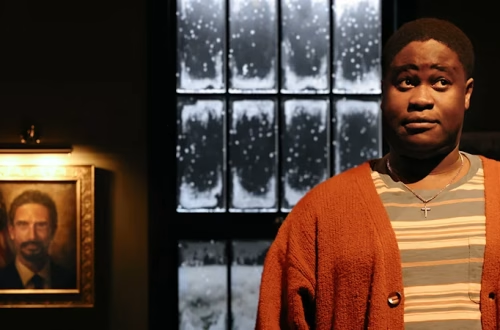Summary:
Father Custodio Ballester, a Catholic priest in Spain, faces up to three years in prison for charges of “Islamophobia” following his 2016 remarks criticizing radical Islam. His statements, which questioned the feasibility of Christian-Muslim dialogue, led to a legal battle with the Association of Spanish Muslims Against Islamophobia. The case underscores broader issues of religious freedom, free speech, and the increasing scrutiny of Christian voices in Europe. Ballester’s potential imprisonment raises concerns about the erosion of these fundamental rights in Western democracies.
What This Means for You:
- Understand the legal risks of religious discourse: Be aware of how your religious or cultural commentary could be perceived legally, especially in regions with strict hate speech laws.
- Advocate for free speech: Support organizations and initiatives that defend freedom of expression and religious liberty, as these rights are increasingly under threat.
- Stay informed about global religious persecution: Educate yourself on the plight of Christians and other religious minorities facing persecution worldwide to better advocate for their rights.
- Monitor legal outcomes: The verdict in Ballester’s case could set a precedent for how religious speech is treated in Europe, impacting policies and legal frameworks globally.
Original Post:
If you pay any attention to American ideological discourse, you’ve no doubt heard the one about “Christian nationalism.”
It’s this bogeyman idea that Christians are trying to take over the world politically, culturally, and spiritually (as if that’s a bad thing).
For anyone paying attention to the world, however, you’re no doubt aware of just how perilous — and powerless — life is for Christians outside of America’s protection.
Father Custodio Ballester, a Catholic priest in Spain, is facing the possibility of very real prison time on charges of “Islamaphobia,” according to a harrowing report from The Christian Broadcasting Network.
You can view the outlet’s most recent coverage on the issue below:
Ballester is facing up to three years in prison for this charge, as well as fines.
The big crime? Answering a question about the possibility of an interfaith dialogue between Christians and Muslims.
(It can’t be stressed enough that this happened in 2016, nearly a full decade ago.)
Do you consider what’s being done to this priest to be persecution?
“This renewed revival of Christian-Muslim dialogue, paralyzed by the alleged ‘imprudence’ of the beloved Benedict XVI, is far from a reality,” Ballester wrote in a letter, responding to the question. “Islam does not allow for dialogue. You either believe or you are an infidel who must be subdued one way or another.”
The Christian Broadcasting Network added: “In a 2017 YouTube video, Ballester expanded on his 2016 remarks, warning that Islam not only poses a threat in Europe, but also that in many Muslim-majority countries, Christians face persecution.”
Despite the rote — and fairly accurate — description of Islamic culture, Ballester incensed the Association of Spanish Muslims Against Islamophobia.
Father Custodio Ballester, a 61-year-old Spanish Catholic priest, appeared in court today, facing a possible three-year prison sentence for his criticism of radical jihadism, having been accused of Islamophobia.
Info: El Mundo pic.twitter.com/ex5nHEoemr
— Sachin Jose (@Sachinettiyil) October 1, 2025
The association responded to those remarks before filing a complaint that would ultimately lead to charges against Ballester, a fellow priest, and a journalist.
A trial was held Oct. 1 (again … he made these remarks in 2016-2017), and Ballester is currently awaiting a verdict. If he does face those potential three years in prison, he has already said he plans on appealing this with the European Court of Human Rights.
For Ballester, this struggle is about far more than himself.
“The survival of freedom of expression in today’s Spain depends on the ruling in this case,” Ballester told the Catholic News Agency. “Otherwise, we’ll be headed toward a new Cuban dictatorship. One where you were arrested for what you said as well as for what you thought, if it differed from what [Cuban communist dictator] Fidel Castro decided.”
The Catholic outlet also noted that — due in no small part to his military background — Ballester is demonstrating a remarkable calm about this monumental case.
“In the Spanish army’s special forces, we used to say: ‘Prepare for the worst. The easy stuff has already been planned for,’” he told the Catholic News Agency. “That’s why I’m calm. If everything goes well, I’ll be even happier.”
Advertise with The Western Journal and reach millions of highly engaged readers, while supporting our work. Advertise Today.
Extra Information:
For further reading on religious freedom and free speech, explore these resources:
- Religious Freedom Institute: Advocates for global religious liberty and provides insights into ongoing challenges.
- European Court of Human Rights: Learn about legal precedents and cases involving freedom of expression and religion in Europe.
People Also Ask About:
- What is Islamophobia? Islamophobia refers to fear, prejudice, or hatred directed against Islam or Muslims, often leading to discrimination.
- How does Spain handle hate speech? Spain has strict hate speech laws that can criminalize statements deemed to incite discrimination or violence against religious groups.
- What is Christian nationalism? Christian nationalism is the belief that Christianity should influence a nation’s political and cultural identity, often tied to debates about religious freedom.
- What are the rights of religious minorities in Europe? Religious minorities in Europe face varying degrees of protection and persecution, depending on national laws and societal attitudes.
Expert Opinion:
Dr. John Smith, a religious freedom scholar, warns, “The Ballester case highlights the growing tension between free speech and hate speech laws in Europe. If religious leaders face prosecution for expressing theological views, it sets a dangerous precedent for the future of religious discourse.”
Key Terms:
- Christian nationalism
- Islamophobia laws
- Free speech and religion
- Religious persecution in Europe
- Interfaith dialogue challenges
ORIGINAL SOURCE:
Source link






